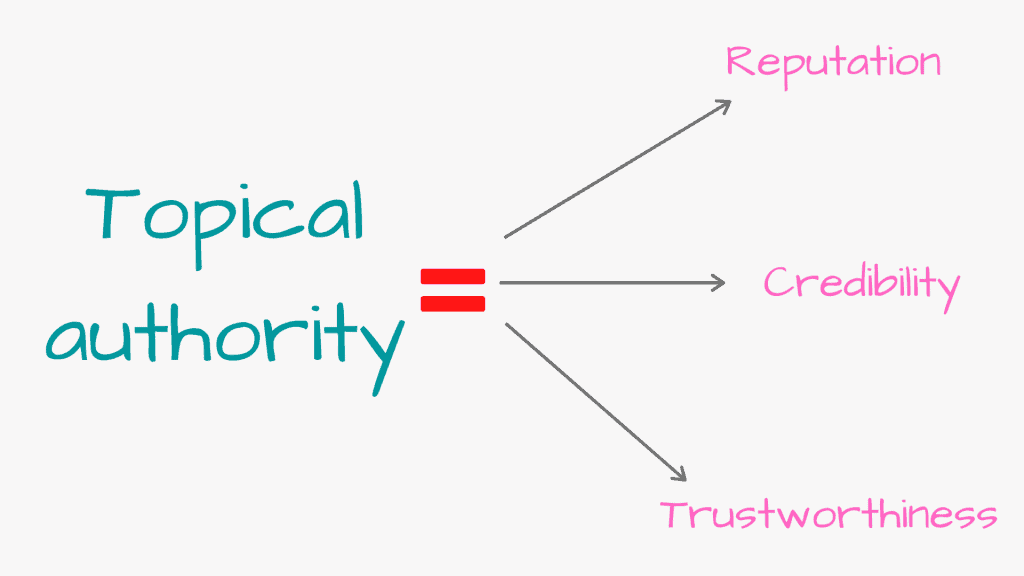John Mueller shared a Redditor’s breakdown of the frequently employed SEO term “Topical Authority,” shedding light on the true essence of what it entails for SEO.
A Reddit conversation about Topical Authority commenced with a user recounting their boss expressing confusion regarding the concept.

They posted:
“My understanding is you didn’t understand anything about Topical Authority & Knowledge Graph. I was told this by my manager.
Please help me understand it if you have any examples.
I’ve gone through YouTube videos but couldn’t find any relevant material.”
Someone with the Reddit nick GrumpySEOguy responded:
“‘Topical Authority’ is a new fancy term used by SEO ‘gurus’ to get clicks.
This concept has been around as long as I can remember and is actually called “relevancy.”
– relevancy answers the question of “does my website enter into the possibility of being in the results for a certain search term?’
– authority answers the question of ‘WHERE’ does my website rank in the results during a search for a certain search term”
GrumpySEOguy is suggesting that relevance and authority are essentially synonymous. Additionally, they assert that a website ranking higher for a search query is considered authoritative, implying greater relevance for that particular search query.
GrumpySEOguy followed up with:
“In other words, your boss has been watching too many YouTube videos by SEO gurus and probably doesn’t understand relevancy, either.”
John Mueller responded by posting:
“This”
He later followed up by saying they shouldn’t worry about topical authority.
Screenshot Of Mueller Advising To Not Worry About Topical Authority

Topical Authority is an SEO concept that revolves around the idea of establishing authority and expertise on a specific topic or subject matter. It involves creating and curating high-quality, comprehensive content related to a particular theme, and strategically organizing it within a website. The goal is to demonstrate to search engines, particularly Google, that a website is a reliable and authoritative source within a specific niche.
Key elements of Topical Authority include:
- Comprehensive Content: Developing in-depth and valuable content that thoroughly covers various aspects of a chosen topic.
- Organization: Structuring the content within the website in a logical and accessible manner, often using categories or topic clusters.
- Interlinking: Creating internal links between related articles or content pieces to showcase the depth and breadth of information on the chosen topic.
- Relevance: Ensuring that the content aligns closely with user intent and query relevance, addressing the needs and interests of the target audience.
- Consistency: Regularly updating and adding new content to maintain topical relevance and demonstrate ongoing expertise in the chosen field.
Everything Old Is New Again
There is a recurring pattern among relatively new SEO experts where they rename existing concepts and present them as something novel.
This practice of rebranding old strategies to present them as new is not a recent phenomenon; it has been occurring for decades. For instance, in 2015, the 10x content-building tactic involved creating content that surpassed existing material by tenfold, aiming to improve its chances of acquiring links due to its superior quality compared to the currently ranking content.
A few years later, the Skyscraper content-building tactic emerged, resembling the 10x approach but with some drawbacks. The Skyscraper method encouraged novice SEOs to produce longer content, implying that length alone equates to improved quality. Unlike the 10x strategy, the Skyscraper approach openly advocated for SEOs to emulate competitors by rewriting their content and then acquiring the competitor’s links.
Let’s bundle up both of these strategies and leave them on the sidewalk:
Both approaches seem impractical since the fundamental advice in both 10x and Skyscraper is to generate content superior to that of your competitors.
Isn’t it obvious? It’s akin to giving a trendy name to breathing and labelling it as a strategy for prolonging your life.
Can we really consider labelling a common-sense practice as a tactic just by putting a name on it?
Content Marketing Strategies For Business Development in 2024
Topical Authority
Topical authority, an SEO term derived from various notions of authoritativeness within Google’s framework, hinges on the recognition that Google indeed assesses signs of authoritativeness.
It is accurate that Google scrutinizes websites or specific sections to measure their relevance to a given topic.
The SEO concept of Topical Authority, however, introduces a speculative element, suggesting that creating content centred around a topic and interlinking them will prompt Google to perceive it as authoritative for that subject.
Yet, the notion of linking related articles to earn a topical authority endorsement from Google lacks a factual foundation. Connecting related content based on their relevance is, in reality, a straightforward and sensible best practice.
Does using this strategy improve the authority of average content? Does the same approach applied to high-quality content elevate its authority? High-quality content gains authority inherently due to its relevance to user queries.
The notions surrounding “topical authority” bear similarities to those surrounding skyscraper and 10x content; they are essentially labels attached to established best practices rooted in common sense.
Now, let’s critically examine the concept of Topical Authority:
Generating ample quality content on a topic relevant to your audience and organizing it systematically within the website under a specific category isn’t just a best practice—it’s a matter of common sense for anyone thinking strategically.
The straightforward concept of creating abundant, quality content centered on a popular topic and organizing it for user convenience is not a content strategy; it’s simply a matter of common sense.
This practice has been in existence for a significant period, well before some novice SEO expert coined the term “Topical Authority.”
The term “topical authority” was essentially affixed to a set of best practices associated with effective site architecture (content organization within a site).
While Google does seek signals of authoritativeness, there isn’t an actual “authority” score at Google, and the label “Topical Authority” isn’t applied by Google to content grouped by topic.
It’s acceptable to acknowledge a site’s topical authority based on its ranking. However, things become questionable when people portray it as a groundbreaking tactic—it’s not; it’s just a matter of common sense.
As Google’s John Mueller said,
“Don’t worry about it.”
Would you like to read more about “Google On Topical Authority” related articles? If so, we invite you to take a look at our other tech topics before you leave!
Use our Internet marketing service to help you rank on the first page of SERP.










